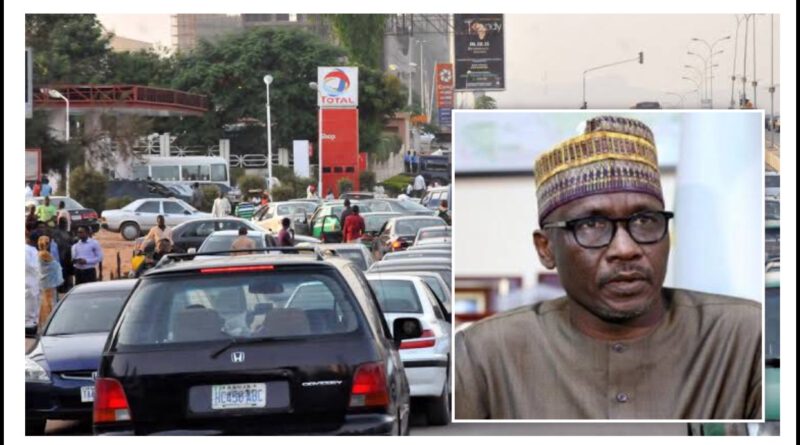When will this current fuel scarcity end, as Nigerians spend hours at filling stations, with a litre sold for N800?
By Taiwo Olapade
The question on the lips of many Nigerians is: when will this current fuel scarcity end?
Certainly, this is not the best of times for many Nigerians as fuel queues resurface across most filling stations in states of the federation, including the seat of power, the FCT.
The first implication of the scarcity is that the cost of every other item and service will go up, including that of transportation, since unhindered fuel supply is crucial to virtually all we do in the country.
Secondly, many Nigerians now have to spend valuable hours at filling stations, waiting endlessly to buy the product, even at a new, moderate price. The practice in most filling stations now in Lagos is that buyers of the product are asked to pay an extra N500 for jerry cans and N200 for vehicles before being attended to. Surprisingly, those selling black market around the filling stations and nearby are on hand to sell between N700 and N800 per litre in Lagos and environs.
However, as much as one may consider buying from the black market to save time and energy, the risk of buying adulterated fuel that could damage the engine of the vehicle is very high.
What has happened to the promises and assurances given by some of the past Ministers of State for Petroleum, including Ibe Kachikwu and Timipre Sylva, that Port Harcourt Refinery will soon start dispensing fuel without any result?
What has happened to the multi-billion naira spent on Turn Around Maintenance on the four major refineries in Kaduna and Port Harcourt since the nation returned to democratic rule in 1999?
Just last December, the current Minister of State for Petroleum, Heineken Lokpobiri, announced to the world that the Port Harcourt Refinery had undergone successful mechanical repairs. Yet, what that means for ordinary Nigerians is yet to be seen, about five months after.
The spokesman for the NNPC, Olufemi Soneye, stated in a release that the current scarcity was due to logistical issues, which have since been resolved. He cautioned Nigerians against panic buying and stockpiling the product at home, asserting that the nation’s oil giant has enough products in stock. However, this assertion is yet to be seen in practice.
The Independent Petroleum Marketers Association of Nigeria (IPMAN) is displeased that the country has reverted to the era of fuel scarcity and long queues, although acknowledging that the NNPC is on top of the situation. They suggest the situation could last for another week before normalizing.
The National Association of Nigerian Students (NANS) has threatened a nationwide mass action if the NNPC fails to find a solution to the current fuel scarcity. NANS Senate President, Comrade Akinteye Afeez, in a statement, called on the MD of the NNPC, Mele Kyari, to resign if he fails to end the lingering fuel scarcity, which he said has left many Nigerians, including students, frustrated and helpless.
Currently, there are about five Modular Refineries licensed by the federal government to operate, mostly in the South-South region. Would it be wise for the government to allow more Nigerians to enter that space as part of the immediate solution to the lingering fuel scarcity?
The advent of the $20 billion Dangote Refinery in the Lekki area of Lagos appears to be a saving grace for the country. At the moment, the sale of diesel from the refinery has forced the price down from as much as N1,600 per litre to around N950.
It took Africa’s richest man, Alhaji Aliko Dangote, about ten years to build the multi-billion naira refinery, just as it took Nigeria, the largest black nation in the world, twenty-four solid years and still counting, spending trillions of naira on Turn Around Maintenance without tangible results. Would it not have been better for Nigeria to invest the money on TAM on building a new refinery from scratch?




